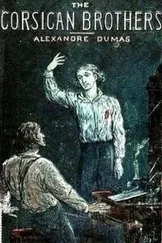Александр Дюма - The Conspirators
Здесь есть возможность читать онлайн «Александр Дюма - The Conspirators» весь текст электронной книги совершенно бесплатно (целиком полную версию без сокращений). В некоторых случаях можно слушать аудио, скачать через торрент в формате fb2 и присутствует краткое содержание. Год выпуска: 2014, Издательство: epubBooks Classics, Жанр: Историческая проза, на английском языке. Описание произведения, (предисловие) а так же отзывы посетителей доступны на портале библиотеки ЛибКат.
- Название:The Conspirators
- Автор:
- Издательство:epubBooks Classics
- Жанр:
- Год:2014
- ISBN:нет данных
- Рейтинг книги:3 / 5. Голосов: 1
-
Избранное:Добавить в избранное
- Отзывы:
-
Ваша оценка:
- 60
- 1
- 2
- 3
- 4
- 5
The Conspirators: краткое содержание, описание и аннотация
Предлагаем к чтению аннотацию, описание, краткое содержание или предисловие (зависит от того, что написал сам автор книги «The Conspirators»). Если вы не нашли необходимую информацию о книге — напишите в комментариях, мы постараемся отыскать её.
The Conspirators — читать онлайн бесплатно полную книгу (весь текст) целиком
Ниже представлен текст книги, разбитый по страницам. Система сохранения места последней прочитанной страницы, позволяет с удобством читать онлайн бесплатно книгу «The Conspirators», без необходимости каждый раз заново искать на чём Вы остановились. Поставьте закладку, и сможете в любой момент перейти на страницу, на которой закончили чтение.
Интервал:
Закладка:
One day Boniface, contrary to his usual habit, returned home from Joullu's at three o'clock, and entered the room of the sufferer. The poor boy was so pale and so cast down, that Bathilde understood that he brought some terrible information, and giving a cry, she rose upright, with her eyes fixed on him.
"All is finished, then?" asked Bathilde.
"Alas!" answered Boniface, "it is all through his own obstinacy. They offered him pardon—do you understand, Mademoiselle Bathilde?—his pardon if he would—and he would not speak a word."
"Then," cried Bathilde, "no more hope; he is condemned."
"This morning, Mademoiselle Bathilde, this morning."
"To death?"
Boniface bowed his head.
"And when is he to be executed?"
"To–morrow morning at eight o'clock."
"Very well," said Bathilde.
"But perhaps there is still hope," said Boniface.
"What?" asked Bathilde.
"If even now he would denounce his accomplices."
The young girl began to laugh, but so strangely that Boniface shuddered from head to foot.
"Well," said Boniface, "who knows? I, if I was in his place, for example, should not fail to do so; I should say, 'It was not I, on my honor it was not I; it was such a one, and such another, and so on.'"
"Boniface, I must go out."
"You, Mademoiselle Bathilde!" cried Boniface, terrified. "You go out! why, it would kill you."
"I say I must go out."
"But you cannot stand upright."
"You are wrong, Boniface, I am strong—see."
And Bathilde began to walk up and down the room with a firm step.
"Moreover," added Bathilde, "you will go and fetch a coach."
"But, Mademoiselle Bathilde—"
"Boniface," said the young girl, "you have promised to obey me; till this minute you have kept your word; are you getting lax in your devotion?"
"I, Mademoiselle Bathilde! I lax in my devotion to you? You ask for a coach, I will fetch two."
"Go, my friend, my brother," said Bathilde.
"Oh! Mademoiselle Bathilde, with such words you could make me do what you liked. In five minutes the coach will be here."
And Boniface ran out.
Bathilde had on a loose white robe; she tied it in with a girdle, threw a cloak over her shoulders, and got ready. As she was advancing to the door Madame Denis entered.
"Oh, my dear child, what in Heaven's name are you going to do?"
"Madame," said Bathilde, "it is necessary that I should go out."
"Go out! you are mad?"
"No, madame," said Bathilde, "I am in perfect possession of my senses, but you would drive me mad by retaining me."
"But at least where are you going, my dear child?"
"Do you not know that he is condemned?"
"Oh! mon Dieu! mon Dieu! who told you that? I had asked every one to keep it from you."
"Yes, and to–morrow you would have told me that he was dead, and I should have answered, 'You have killed him, for I had a means of saving him, perhaps.'"
"You, you, my child! you have a means of saving him?"
"I said, perhaps; let me try the means, it is the only one remaining."
"Go, my child," said Madame Denis, struck by the inspired tone of Bathilde's voice, "go, and may God guide you!"
Bathilde went out, descended the staircase with a slow but firm step, crossed the street, ascended the four stories without resting, opened the door of her room, which she had not entered since the day of the catastrophe. At the noise which she made, Nanette came out of the inner room, and gave a cry at seeing her young mistress.
"Well," asked Bathilde, in a grave tone, "what is it, my good Nanette?"
"Oh, mon Dieu!" cried the poor woman, trembling, "is that really you, or is it your shadow?"
"It is I, Nanette; I am not yet dead."
"And why have you left the Denis's house? Have they said anything to wound you?"
"No, Nanette, but I have something to do which is necessary—indispensable."
"You, go out in your present state! You will kill yourself. M. Buvat! M. Buvat! here is our young lady going out; come and tell her that it must not be."
Bathilde turned toward Buvat, with the intention of employing her ascendency over him, if he endeavored to stop her, but she saw him with so sorrowful a face that she did not doubt that he knew the fatal news. On his part, Buvat burst into tears on seeing her.
"My father," said Bathilde, "what has been done to–day has been the work of men, what remains is in the hands of God, and he will have pity on us."
"Oh!" cried Buvat, sinking into a chair, "it is I who have killed him! it is I who have killed him!"
Bathilde went up to him solemnly and kissed him.
"But what are you going to do, my child?"
"My duty," answered Bathilde.
She opened a little cupboard in the prie–Dieu, took out a black pocket–book, opened it, and drew out a letter.
"You are right, you are right, my child, I had forgotten that letter."
"I remembered it," answered Bathilde, kissing the letter, and placing it next her heart, "for it was the sole inheritance my mother left me."
At that moment they heard the noise of a coach at the door.
"Adieu, father! adieu, Nanette! Pray for my success."
And Bathilde went away, with a solemn gravity which made her, in the eyes of those who watched her, almost a saint.
At the door she found Boniface waiting with a coach.
"Shall I go with you, Mademoiselle Bathilde?" asked he.
"No, no, my friend," said Bathilde, "not now; to–morrow, perhaps."
She entered the coach.
"Where to?" asked the coachman.
"To the Arsenal."
Chapter XLI
The Three Visits
On arriving at the Arsenal Bathilde asked for Mademoiselle de Launay, who—at her request—led her at once to Madame de Maine.
"Ah, it is you, my child!" said the duchess, with a distracted air and voice; "it is well to remember one's friends when they are in misfortune."
"Alas, madame!" replied Bathilde, "I come to your royal highness to speak of one still more unfortunate. Doubtless you may have lost some of your titles, some of your dignities, but their vengeance will stop, for no one would dare to attack the life, or even the liberty, of the son of Louis XIV., or the granddaughter of the great Conde."
"The life, no; but the liberty, I will not answer for it. Do you know that that idiot of an Abbe Brigaud has got arrested three days ago at Orleans, dressed as a peddler, and—on false revelations, which they represented to him as coming from me—has confessed all, and compromised us terribly, so that I should not be astonished at being arrested this very day?"
"He for whom I come to implore your pity, madame, has revealed nothing, but, on the contrary, is condemned to death for having kept silence."
"Ah! my dear child," cried the duchess, "you speak of poor D'Harmental; he is a gentleman; you know him, then?"
"Alas!" said Mademoiselle de Launay, "not only Bathilde knows him, but she loves him."
"Poor child! but what can I do? I can do nothing: I have no influence. For me to attempt anything in his favor would be to take away from him the last hope remaining."
"I know it, madame," said Bathilde, "and I only ask of your highness one thing; it is, that, through some of your friends or acquaintances, I may gain admission to Monseigneur the Regent. The rest lies with me."
"My child, do you know what you are asking?" inquired the duchess. "Do you know that the regent respects no one? Do you know—that you are beautiful as an angel, and still more so from your present paleness? Do you know—"
"Madame," said Bathilde, with dignity, "I know that my father saved his life, and died in his service."
"Ah, that is another thing," said the duchess; "stay, De Launay, call Malezieux."
Mademoiselle de Launay obeyed, and a moment afterward the faithful chancellor entered.
Читать дальшеИнтервал:
Закладка:
Похожие книги на «The Conspirators»
Представляем Вашему вниманию похожие книги на «The Conspirators» списком для выбора. Мы отобрали схожую по названию и смыслу литературу в надежде предоставить читателям больше вариантов отыскать новые, интересные, ещё непрочитанные произведения.
Обсуждение, отзывы о книге «The Conspirators» и просто собственные мнения читателей. Оставьте ваши комментарии, напишите, что Вы думаете о произведении, его смысле или главных героях. Укажите что конкретно понравилось, а что нет, и почему Вы так считаете.












